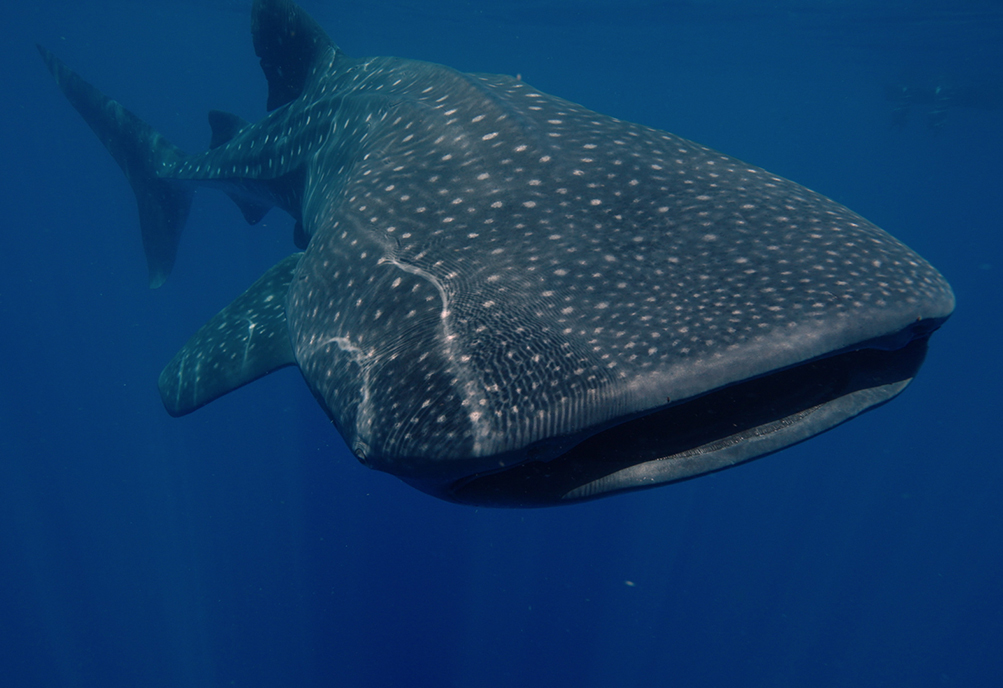Story by Dakota Galvin, USF College of Arts and Sciences
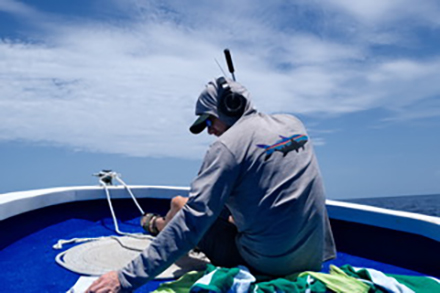
Integrative Biology professor Lucas Griffin conducting field research near the whale shark aggregation site in the Yucatán. Photo by Jessica Bujouves.
Every summer, just off the coast of Cancun, one of the ocean's most extraordinary natural events takes place — the gathering of its gentle giants, the whale sharks. Meanwhile, in Tampa, Lucas Griffin, an assistant professor in the USF College of Arts and Sciences’ Department of Integrative Biology, is dedicating his research to uncovering how these majestic creatures navigate their habitats, overcoming both natural and human-induced challenges. His goal is to contribute to sustainability initiatives that protect marine ecosystems while supporting the communities that rely on them.
Growing up as the son of a wildlife biologist, Griffin spent his weekends and summers birdwatching, chasing salamanders and exploring national parks. To him, his career in conservation and research was an obvious choice, and a family trip to Cancun in 2013 helped lay the foundation for what would become a major focus of his research program.
“My dad and I were amazed by the number of whale sharks — but also by the number of tourists,” Griffin, whose work has been featured on NBC's Mutual of Omaha’s Wild Kingdom, said. “That visit sparked what became a father-son research endeavor.”
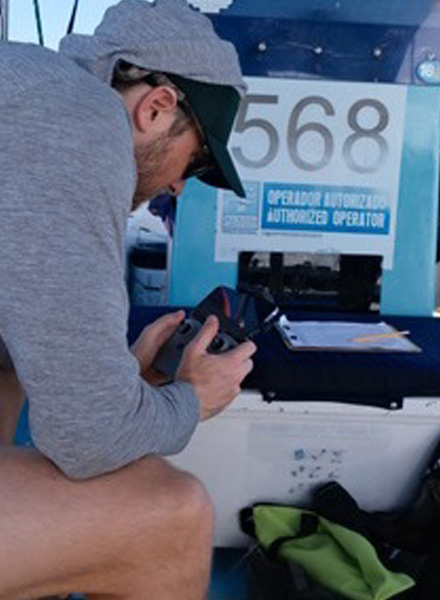
Integrative Biology professor Lucas Griffin works with equipment in the field. (Photo by Jessica Bujouves)
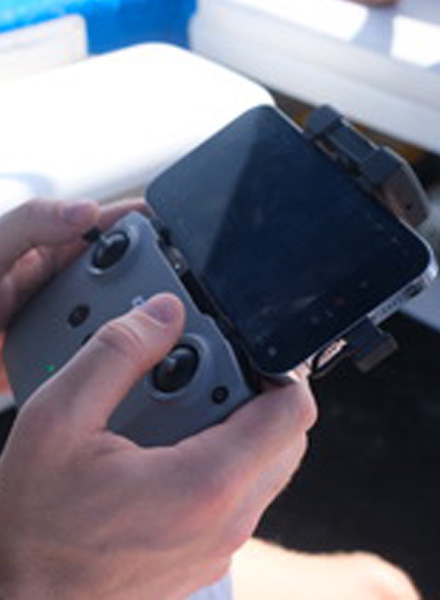
Close up of Griffin's cell phone attached to drone equipment. (Photo by Jessica Bujouves)
When the Griffins returned, they collaborated with Rafael de la Parra, the director
of Ch’ooj Ajauli, a Mexican nonprofit organization dedicated to sustainability and
marine biodiversity, to study interactions between whale sharks, snorkelers and boats
with drones. This research laid the groundwork for future studies, which continued
into the summer of 2024. Using temporarily attached biologgers, devices that record
data on animals' behavior and environment, they collected fine-scale data on the sharks'
behavior in response to tourism.
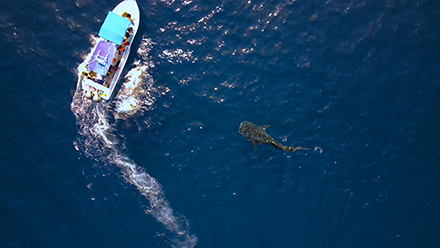
Aerial shot of whale shark aggregation site. Photo courtesy of Hearst Media Production Group / ©2025 Mutual of Omaha Insurance Company.
“It’s still too early to draw definitive conclusions from the collected data, but one of the most remarkable aspects of this research is not just witnessing whale sharks in their natural habitat, but also seeing how the annual aggregation has become a defining feature of the region, attracting visitors from around the world,” Griffin explained.
“Over time, this grew into a thriving tourism industry,” he added.
According to Griffin, while this industry is economically important, both the government and the tour operators recognize the need to balance tourism with conservation, ensuring that whale sharks can continue their natural behaviors without excessive disturbance. The data they collect will help support sustainable tourism practices.
“By bridging science with conservation and management, my goal is to provide actionable knowledge that helps maintain the balance between ecological health and human livelihoods,” Griffin said. “Our hope is that this unique ecotourism experience flourishes while safeguarding the species for future generations.”
